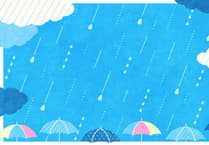THE coin was pushed into the slot and it rattled away to its unknown destination, flicking levers and triggering switches as it went and the machine was suddenly alive. Rows of buttons - numbers and letters - awaited the command, lighting up as they were chosen and setting the magic in motion.
A carousel of black plastic discs rolled and stopped, a mechanical arm pulled out one of their number, twisted it and brought it down on to the waiting turntable. The arm lowered the stylus and after a second of crackling a much-loved song boomed out, the deep bass and the drums taking on a new resonance as big speakers brought to life the music in a way a little transistor radio never could.
For a single coin our favourite artists played on demand and, in a backwater town in the sixties, this was as close as we were ever going to get to seeing or hearing them perform live.
The musicians might never have included our small town on their itineraries but the instruments were there for all to see in the window of Williams’ Music Shop. Shining electric guitars in sunburst red or gleaming white, their pick-ups and controls gleaming chrome. A bass guitar, the same shape as the one Paul McCartney played, was displayed on a stand, its four fat strings ready to lay down a rhythm for someone with the cash and a dream of stardom.
For us, 12 and 13-year-olds, there were dreams aplenty but not the faintest idea of how they could ever be made into reality. We would avidly watch Top of the Pops on a Thursday evening; we could name every member of every group and sing every lyric of every song. Substituting cricket bats or tennis racquets for guitars and a wardrobe mirror for an audience we would, for a few short moments, cross the boundary between what was and what could be.
But then, on a cold evening in the depths of a particularly hard winter with the ploughed snow piled three feet high on the sides of the road where it glowed orange under the glare of the streetlamps… we heard something amazing!
As four of us trudged home, cold, damp and tired from a few hours sledging on a nearby hillside we passed the storage warehouse for the local cash and carry and from inside came music that couldn’t possibly have been generated by a machine. It was the unmistakeable sound of a band rehearsing and it pulled us irresistibly in.
With considerable effort we managed to sweep the snow off an old workbench and drag it to a place under the high window and we climbed up to peer through. Wiping away years of grime we managed to see enough through the smudges to confirm our assumption.
There was a real group in there, not a famous one, but still a real group, with real electric guitars and a drum kit and amplifiers.
A few girls sat and watched as the four youths belted out the introduction to The Searcher’s (below) hit, ‘When You Walk in the Room,’ dissatisfied they stopped and counted themselves in to start again. One of the girls turned and caught sight of our faces peering through the glass. She got up and headed to the door. We hastily clambered down in anticipation of being told to clear off.
As we reluctantly walked away a voice called us back and one of the girls beckoned to us; she was a cousin of one of our number and to our delight took us into the warmth and light of the warehouse and into the presence of a real group.
With unplanned but perfect timing we entered the hall just as the band reached the line, ‘..I can feel that something pounding in my brain…’ and so it did. An all-enveloping sound that shook dust from the floorboards and rattled the ancient windows in their fittings. The lead guitarist had a cigarette tucked behind his ear and winklepicker shoes far pointier than any my father would have allowed me to wear.
I recognised the drummer as the youth who worked in the butchers, I had often seen him absently rapping out a rhythm on the scales with a pair of skewers and now I knew why.
To our young and untrained ears, they sounded amazing. We sat on the floor against the wall feeling the boards vibrating beneath us, shaking drops of melting snow from our shoes and cuffs.
The band went through their repertoire of six or seven ‘Sixties hits and we resisted the temptation to sing along with them but nodded our heads and tapped our feet vigorously, shaking droplets of melting snow from our shoes on to the grimy floor.
We stayed until the ends of the rehearsal, oblivious to the fact that it had made us more than an hour late for home and on the dark and chilly way back we held an impromptu Mick Jagger impersonation contest to keep warm.
Half a century later music is available at the touch of a key and I go to concerts several times a year, but its very attainability somehow dilutes it. Back then live music was a whole world away (If you discounted the Sally Army band who played outside Woolworth’s on a Saturday - but they didn’t do many Rolling Stones numbers).
Whenever I hear that old Searchers song it triggers a cocktail of sensations. Cold, wet feet, the smell of a thousand smoky chimneys, snow glowing orange under the streetlights and most of all hope – we were young, things were moving so quickly and one day maybe that would be us playing those guitars with our hair halfway down our ears and wearing the pointiest shoes imaginable.
Inevitably, however, both fashions and our tastes in music changed considerably over the ensuing decade and it was a very different young man who finally got his hands on a real electric guitar. By then, Punk had arrived and my sister and I went together to Newport and returned home with mohicans - mine was green and hers was purple. For good measure I also had my ears pierced and Susan had a pin through her nose.
Perhaps we should have broken it to Dad one at a time, I can still recall the look as we walked nonchalantly into the living room. He peered over the top of the paper, eyes widening and the Daily Mirror slowly lowered to reveal an open mouth.
This was a man who had fought his way through Burma but clearly nothing had prepared him for the shock of his hideously disfigured offspring.
‘Lil!’ He called upstairs to Mother and, sparked by his clear distress, she hurried down and into the room, skittering to a stop like a horse who had spotted an adder.
‘By all the...’ She crossed herself, ‘Ye pair of heathens!’
Inexplicably she turned her rage onto our still-traumatised father.
‘This is YOUR doing, this is!’
Father’s look of shock was replaced by wounded innocence. ‘How the hell can you blame..’
Mother cut him off, ‘Encouraging him to buy the sort of guitar Val Doonican wouldn’t be seen dead with!’
The first punk band I joined was called ‘The Electric Drills’, we had teeshirts made with Electric Drills written on them in lightning-boltey writing.
We wrote most of our own stuff. We had a song called Kiss Kick or Torture – named after the merry playground game where you go up to girls and say Kiss Kick or Torture and they try to scram you.
I can’t remember the song, mercifully, because it really wasn’t very good, but there was a line in it that went, ‘I’m gonna kick your handbag all around the dance floor!’
We were hoping it would incite all the guys at our gigs to rush up to the girls’ bags and kick them. Dozens of bags and their contents soaring through the air. We even prepared a press release, trying to stir up a bit of notoriety, ‘Call For Ban on Handbag Kicking Song.’
But it never happened, not a single bag got kicked, no one cared, and then we heard there was a band locally called ‘Look - Daggers!’ They could actually play, we couldn’t compete with that, so we split up.
The drummer and I formed a breakaway band called ‘Horses Hate Mustard’ we had two rehearsals but circumstances overtook us. My day job turned into a night job meaning I couldn’t gig regularly and he joined the Army, where his love of surreal haircuts and piercings was marched out of him. He ended up working as a member of The Who’s road crew and once had his photograph on the cover of Angling Times.
In the ‘Eighties, I was part of a cabaret duo called ‘Turnpike’ (pictured above) and we toured the working mens club circuit of the South Wales Valleys. I played guitar and did backing vocals while Phil sang and told jokes. All good harmless fun.
The first time we got ‘Paid-off’ was in a club in Mountain Ash. I had forebodings as soon as we walked out on to the stage and peered at the audience. It was like looking out at a room full of Easter Island statues, hostile eyes glittering through the smoke, a low rumble of malevolent alertness and an impatience for the bingo to begin.
We managed three numbers, all greeted with utter disinterest before the concert secretary got up on to the stage, apologised for the termination of the act and escorted us to the dressing room. ‘You shouldn’t have tried comedy here’ he shook his head.
In common with the other members of the committee who had squeezed into the small room he looked as if his idea of an enlightning outing would be an afternoon in an abbatior.
It wasn’t always so bad. At a gig in Abertillery I fell off the stage and broke my ankle which got a tremendous round of applause and a cheer; while in Carmarthen one night, we returned to our car at the end of the gig to find a tall fridge tied to the roof rack and a man asking if we could drop it up to his brother’s place which was only 11 miles in the opposite direction to home.
Turnpike, surprisingly, lasted for almost three years in which I developed a thick skin, a telepathic bond with my performing partner onstage and an intense and abiding dislike of people who shout while in comfortable talking distance.
I subsequently went on to perform solo for many years, often with a collective called ‘Unity’ which comprised poets, musicians and singers. It was on a night in 1997, in Brynmawr’s Beaufort Theatre, that I met the future Mrs Rogers who was reading a poem called, ‘Willy the Winkle’ in a London accent.
The ‘Big Time’ may never have come for us, as it did for a few lads of our acquaintance in the long-gone Amen Corner, but what has prevailed throughout the decades is an awareness of the power of music to lift us as no other art form can.
I now attend gigs ranging from Celtic Punk to Proms in the Park and I love them all. As soon as the beautiful noise starts, the sandbags are released from the spirit and the melody carries me away, sometimes to the past, sometimes remaining in the present and it even offers a glimpse of the future because, irrespective of the medium through which we consume and enjoy it, music is as eternal as the human spirit itself.
Now, at the tap of a screen or the click of a mouse, I can travel all the way back down the tunnel of time to that chilly warehouse with the flickering tube light and splintery seat and I can hear the sounds of the past, alive and immediate, as though for the first time, because music, like gold, never tarnishes.
As with the titans of past centuries, so the creators of today’s music will also earn a sort of immortality. It’s a rather pleasing thought that, a century from now, someone might discover Eleanor Rigby or Pretty Vacant for the first time and listen to a world that believed it had invented music. Perhaps that’s the magic, the eternal newness of it.
Every time a piece of music, a song, is played, it invokes the spirit of its creator, they are there with you. It is here to stay, it will never die.



